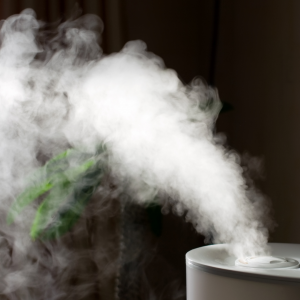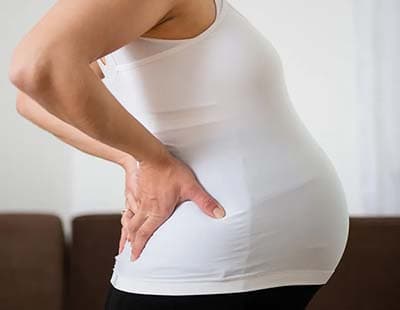When you’re ready to get to sleep, you just want to be able to close your eyes without any problems. If you’re suffering from a cold or flu, you know that the struggle to get to sleep can be frustrating and in some cases, feels like it can be nearly impossible.
With the cold and flu season now upon us, you are probably wondering how to sleep with a cold or flu. With a game plan in place, and a little bit of knowledge, you can still get the sleep you need to help you get better in a timely fashion. Here are some helpful tips and tricks you can try.
What to do during the day
Dietary
What you do during the day will help make things easier or more difficult when bedtime rolls around. If you start feeling under the weather, grab that water and start hydrating!
Keeping hydrated helps thin any mucus in your body, which then keeps any mucus from leaving the nose and sinuses (remember, a stuffy nose happens when the body overproduces mucus and the sinuses fill up). Looking to add a little flavor to the water? Add lemons! Not only will the lemons help the water not be so bland, but the Vitamin C within the lemon can help possibly shorten a cold if you get the vitamin regularly.
If you enjoy tea, then you’ll be happy to hear that tea is highly recommended! Drinking a hot cup of tea can help soothe a sore throat, relieve a stuffy nose, and clear that annoying chest congestion. If you’re looking to stop an annoying cough, try peppermint tea. The menthol inside peppermint leaves can help soothe the throat, helping stop coughs. Have an upset stomach due to a cold or flu? Ginger tea not only helps soothe the throat, it is also known to help relieve nausea.
Looking for foods that help? Try spicy food (if you can tolerate the heat). Chiles, which are the hot peppers, contain Capsaicin, which is what give these little peppers the heat. Capsaicin not only packs the punch that burns the taste buds, it can also ease sinus pressure, reduce the inflammation and release that pesky blocked mucus. Capsaicin also creates mucus (if you’ve had really spicy food, you’ve definitely noticed this), so it will cause the nose to be runny, but that of course helps get the excess mucus OUT. Just make sure to stop eating the spicy stuff two to three hours before you plan on getting to bed, as spicy foods can increase your body’s temperature, which can hinder sleep.
If you’d rather not deal with the heat, then the centuries old recommendation of chicken soup is the next best thing. While scientists aren’t able to pinpoint the ingredient or ingredients that make this staple work, the one-two combo of veggies and chicken may be what you need. And because most chicken soups use a broth, the soups can also help with hydration. Vegetarian or vegan? Vegetable soup, butternut squash soup or tomato soup are great alternatives!

Of course, there are some things you should avoid throughout the day if you want relief. If you are the kind of person that needs coffee throughout the day, make sure you cut back on the number of cups, and stop drinking coffee around 2 PM. Having too much coffee can lead to dehydration, which can make congestion worse. Also, don’t consume any alcohol while trying to fight off the cold or flu, since it will also lead to dehydration.
Medicine and other tricks
In terms of medicine, decongestants can help relieve the sinus pressure that makes you miserable and keep you up at night. These decongestants can either be taken orally, or by using a nasal spray. As with any kind of medication, make sure you talk with your doctor to ensure that it is safe.
Looking for relief from sinus pressure? Take the index fingers from both hands and press on the base of your nose. Hold this pressure for about three minutes. If the sinus pressure is causing you headaches, you can press your fingers on the innermost corners of your eyebrows and hold for three minutes to get some relief.
And finally, avoid blowing your nose. Yes, you read that right. Researchers have found that blowing the nose doesn’t help get the mucus out of your sinuses, but it can actually bring MORE mucus into the sinuses. This happens because when you blow your nose, you are building up pressure that can ultimately shoot the mucus right into your sinuses! On top of that, the already inflamed blood vessels around your sinuses that cause the pressure can increase the swelling, making you feel even worse! If you absolutely HAVE to blow your nose, make sure to close one nostril and blow LIGHTLY through the open nostril.
Before bedtime and bedtime
Just before you get to bed, there are some things you can do to help alleviate any congestion. A facial steam will help loosen any mucus in your nasal passages, helping ease the congestion. Running hot water in the bathroom or kitchen will be the easiest for this. After filling the sink with warm water, lean over and inhale deeply to breathe in as much steam as possible. Use a towel over your head to help trap as much vapor as possible. Make sure you give yourself enough distance from the hot water so you don’t burn yourself from the hot vapors. You can also take a hot shower as an alternative. Just make sure to keep the bathroom door closed so you can have as much steam in the room as possible.
If you can, try using a neti pot as well. While this may feel slightly uncomfortable and a little weird, neti pots can help rinse out mucus from the nose, allowing you to breathe a little better. Use a saltwater solution to help get the best effects, but make sure you use boiled water that has cooled, as you want to kill off any bacteria that may be in the water that enters your nose.
If you’re suffering from a sore throat, gargling can help bring much needed relief before getting to bed. Mix ¼ to ½ a teaspoon in 8 ounces of warm water and gargle as needed. Doctors have indicated that gargling can also help flush out viruses, so it may not be a bad idea to do if you feel the beginning of a cold or flu coming on.
If you have chest or vapor rubs on hand, try applying some before going to bed. Vapor rubs that include menthol, camphor, or eucalyptus oil can help improve your sleep.
Getting your bedroom to be optimal for sleeping with a cold or flu is essential. If your room is generally dry, make sure to use a humidifier. Dry air will likely irritate your throat and nasal passages, making it harder to breath and feel comfortable. Also, make sure your room is both cool and dark, so you won’t be affected by temperature or light fluctuations.

When you’re crawling into bed, you may want to try using a nasal strip. Nasal strips contain a splint that lifts the sides of your nostrils to help open the nasal passages, allowing for better airflow. While this will only provide temporary relief, being able to breathe more easily will make it easier to get to bed.
If you have extra pillows handy, put them to work. Place the extra pillows on top of one another to help drain the excess mucus and relieve the sinus pressure you are experiencing. You will have to lay on your back to get the benefits.





















